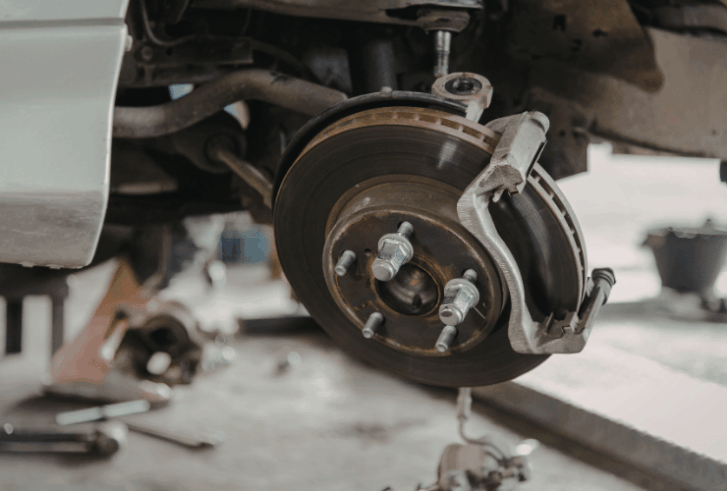That high-pitched brake squeal or harsh brake grind can throw you off every time. You’re left guessing if it’s just rust or a sign of an emergency brake issue that puts your safety at risk. Sorting through these sounds can save you from costly repairs and keep your car maintenance on track. Let’s break down the three brake noises your car makes and when it’s time to act fast.
Understanding Brake Noises
Every unusual sound from your car’s brakes tells a story. Knowing what these sounds mean can help you respond effectively and maintain brake safety. Let’s dive into what causes these noises and how you can address them.
Common Causes of Brake Squeal
Is that high-pitched squeal driving you mad? This noise often happens when brake pads vibrate. Typically, it’s more annoying than harmful. Dust and moisture can also contribute, making that squeak even louder.
- New car? Brake squeals can be more prominent in new vehicles. This occurs as the pads settle in.
- Harmless or not? Most times, it’s harmless, but if it persists, you’ll want to check it out.
- Quick fix: Cleaning the brakes may silence the squeal.
Taking steps now can prevent expensive repairs later. Your car’s health—and your peace of mind—depend on it.
Identifying Brake Grind Signals
Unlike a squeal, a grinding noise demands immediate attention. Grinding sounds can mean metal on metal, indicating worn-out pads. Ignoring this can lead to significant damage.
- What to listen for: A grinding noise when pressing the brake pedal.
- What it means: Likely, the brake pads are worn down.
- Action needed: Replace the pads quickly to avoid damaging the rotors.
Don’t wait too long. Grinding noises can escalate into severe brake issues, increasing repair costs.
When to Perform a Brake Noise Inspection
Knowing when to take action can keep you safe. Regular checks are crucial, especially if you notice any unusual brake sounds.
- Routine checks: Inspect brakes at least once a year or every 12,000 miles.
- Notice a pattern? If the noise gets worse, it’s time for a brake noise inspection.
- Peace of mind: An inspection ensures your brakes work well, providing safety on the road.
Keep your brakes in top condition to prevent emergencies before they happen.
Safety Concerns with Brake Noises
Ignoring brake noises can lead to dangerous situations. Understanding the risks associated with these sounds is vital for your safety.
Recognizing Emergency Brake Issues
Some brake noises signal an urgent problem. Recognizing these can prevent accidents.
- Grinding is critical: Never ignore a grinding sound. It often suggests a crucial issue.
- Squeals can signal wear: If the squeal worsens, your brakes might need attention.
- Stay ahead: Check brakes regularly to avoid emergencies.
Knowing these warning signs keeps you prepared and prevents costly repairs.
The Importance of Timely Car Maintenance
Regular maintenance is key to car safety. It ensures your brakes and other systems work correctly.
- Prevention: Timely checks can catch issues early.
- Cost-effective: Maintaining your brakes can save money in the long run.
- Trustworthy: A well-maintained car keeps you and others safe on the road.
Don’t delay those regular check-ups. Your car—and your safety—depend on it.
Taking Action for Brake Safety
Being proactive about brake safety can save you from unexpected breakdowns. Let’s explore how you can tackle these issues head-on.
Steps to Address Brake Squeal
Want to stop that squeal? Here’s what you can do:
- Clean: Remove dust and debris from the brake area.
- Check pads: Ensure they’re not worn and replace if necessary.
- Lubricate: Use brake grease to reduce vibration and noise.
Tackling the squeal early keeps your brakes working smoothly and quietly.
Solutions for Brake Grind Problems
Addressing grinding noises quickly is crucial for brake safety. Here are some steps:
- Inspect: Look at the brake pads and rotors closely.
- Replace pads: If worn, new pads are essential.
- Consult a mechanic: If grinding persists, a professional can help.
Dealing with grinding issues promptly ensures longer-lasting brakes and keeps you safe on the road.
Don’t ignore the warning signs—if your car is squealing or grinding, schedule a professional brake inspection today at kandmautoservice.com.


